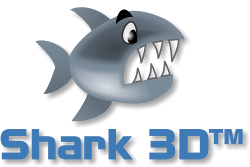
id Software LLC is an American video game developer based in Richardson, Texas. It was founded on February 1, 1991, by four members of the computer company Softdisk: programmers John Carmack and John Romero, game designer Tom Hall, and artist Adrian Carmack.
Westwood Studios, Inc. was an American video game developer, based in Las Vegas, Nevada. It was founded by Brett Sperry and Louis Castle in 1985 as Brelous Software, but got changed after 2 months into Westwood Associates and was renamed to Westwood Studios when Virgin Games bought the company in 1992. The company was bought by Electronic Arts alongside Virgin Interactive's North American operations in 1998. In January 2003, it was announced that Westwood, alongside Westwood Pacific, would be merged into EA Los Angeles. The main studio location closed in March of that year.
A game engine is a software framework primarily designed for the development of video games and generally includes relevant libraries and support programs such as a level editor. The "engine" terminology is akin to the term "software engine" used more widely in the software industry.
A game programmer is a software engineer, programmer, or computer scientist who primarily develops codebases for video games or related software, such as game development tools. Game programming has many specialized disciplines, all of which fall under the umbrella term of "game programmer". A game programmer should not be confused with a game designer, who works on game design.

Epic Games, Inc. is an American video game and software developer and publisher based in Cary, North Carolina. The company was founded by Tim Sweeney as Potomac Computer Systems in 1991, originally located in his parents' house in Potomac, Maryland. Following its first commercial video game release, ZZT (1991), the company became Epic MegaGames, Inc. in early 1992 and brought on Mark Rein, who has been its vice president since. After moving the headquarters to Cary in 1999, the studio changed its name to Epic Games.

Crytek GmbH is a German video game developer and software developer based in Frankfurt. Founded by the Yerli brothers in Coburg in 1999 and moved to Frankfurt in 2006, Crytek operates additional studios in Kyiv, Ukraine and Istanbul, Turkey. Its former studios included Crytek Black Sea in Sofia, Bulgaria, Crytek UK in Nottingham, and Crytek USA in Austin, Texas. Crytek is best known for developing the first instalment of the Far Cry series, the Crysis series, and the open world nature of their games which showcase the company's CryEngine.

Wisdom Tree, Inc. is an American developer of Christian video games. It was an offshoot of Color Dreams, one of the first companies to work around Nintendo's 10NES lockout chip technology for the Nintendo Entertainment System. Color Dreams formed the Wisdom Tree subsidiary in 1990 in an effort to circumvent Nintendo's restrictions against publishers of unlicensed video games for the NES by selling their games at Christian book stores which was not subject to pressure by Nintendo.

Digital Extremes Ltd. is a Canadian video game developer founded in 1993 by James Schmalz. They are best known for creating Warframe, a free-to-play cooperative online action game, and co-creating Epic Games' Unreal series of games. Digital Extremes is headquartered in London, Ontario. In 2014, 61% of the company was sold to Chinese holding company Multi Dynamic, now Leyou, for $73 million. In May 2016 Leyou exercised a call option and increased their stake to 97% of Digital Extremes for a total consideration of $138.2 million US. In December 2020, Tencent bought Leyou for 1.3 billion dollars, which included the majority stake in Digital Extremes that Leyou held.
Saber Interactive Inc. is an American video game developer and publisher based in Fort Lauderdale, Florida. Founded by Andrey Iones, Matthew Karch, and Anton Krupkin in 2001, it is controlled by Karch's investment company Beacon Interactive. The company employs over 1,350 people.

Traveller's Tales is a British video game developer and a subsidiary of TT Games. Traveller's Tales was founded in 1989 by Jon Burton and Andy Ingram. Initially a small company focused on its own content, it grew in profile through developing games with larger companies such as Sega and Disney Interactive Studios. In 2004, development on Lego Star Wars: The Video Game started with Giant Interactive Entertainment, the exclusive rights holder to Lego video games. Traveller's Tales bought the company in 2005, and the two merged to create TT Games, with Traveller's Tales becoming the new company's development arm.

Shark 3D is an engine developed by Spinor for creating and viewing interactive 3D scenes. It is mainly used for developing video games and things similar to game engines, producing films and TV series, as well as creating broadcast graphics and developing 3D applications.
Freescape is a video game engine, an early 3D game engine used in video games such as 1987's Driller. Graphics were composed mostly of solid geometry rendered without shading.

Unity is a cross-platform game engine developed by Unity Technologies, first announced and released in June 2005 at Apple Worldwide Developers Conference as a Mac OS X game engine. The engine has since been gradually extended to support a variety of desktop, mobile, console, augmented reality, and virtual reality platforms. It is particularly popular for iOS and Android mobile game development, is considered easy to use for beginner developers, and is popular for indie game development.

Descent to Undermountain is a role-playing video game developed and published by Interplay in 1998. Based on the Dungeons & Dragons setting of Undermountain in the Forgotten Realms, it casts the player as an adventurer out to explore the treasure-filled recesses of the Undermountain dungeon. The "Descent" part of the name refers to the game's use of the 3D rendering engine from the 1995 game Descent.

Corrinne Yu is an American game programmer. She has worked on games including King's Quest, Quake II, and Halo 4. Her engine work included Unreal Engine 3, Microsoft's Direct3D Advisory Board, and CUDA and GPU simulation at Nvidia. She has also designed accelerator experiments for nuclear physics research.
The video game Duke Nukem Forever spent more than 14 years in development, from 1997 to 2011. It is a first-person shooter for Windows, PlayStation 3 and Xbox 360, developed by 3D Realms, Triptych Games, Gearbox Software and Piranha Games. It is the sequel to the 1996 game Duke Nukem 3D, as part of the long-running Duke Nukem video game series. Intended to be groundbreaking, it became an infamous example of vaporware due to its severely protracted development schedule. Director George Broussard, one of the creators of the original Duke Nukem game, announced the development in 1997, and promotional information for the game was released from 1997 until its release in 2011.
Silicon Studio Corporation is a Japanese computer graphics technology company and HR services provider based in Tokyo. As a technology development company, Silicon Studio has produced several products in the 3D computer graphics field, including middleware software, such as a post-processing visual effects library YEBIS, real-time global illumination technology, such as Enlighten, and Mizuchi, a physically based rendering engine. As a video game developer, Silicon Studio has worked on many different titles for several gaming platforms, most notably, the action-adventure game 3D Dot Game Heroes on the PlayStation 3, the role-playing video games Bravely Default and Bravely Second: End Layer on the Nintendo 3DS, and Fantasica on the iOS and Android mobile platforms.

Paradox Development Studio (PDS) is a Swedish video game developer founded in 1995. It is closely associated with its parent company and video game publisher, Paradox Interactive. It is best known for its grand strategy wargame series Europa Universalis, Hearts of Iron, Victoria, Crusader Kings, Stellaris, and Imperator.

Slipgate Ironworks ApS is a Danish video game developer based in Aalborg, founded in 2010 by Frederik Schreiber.

Open 3D Engine is a free and open-source 3D game engine developed by Open 3D Foundation, a subsidiary of the Linux Foundation, and distributed under the Apache 2.0 open source license. The initial version of the engine is an updated version of Amazon Lumberyard, contributed by Amazon Games.












